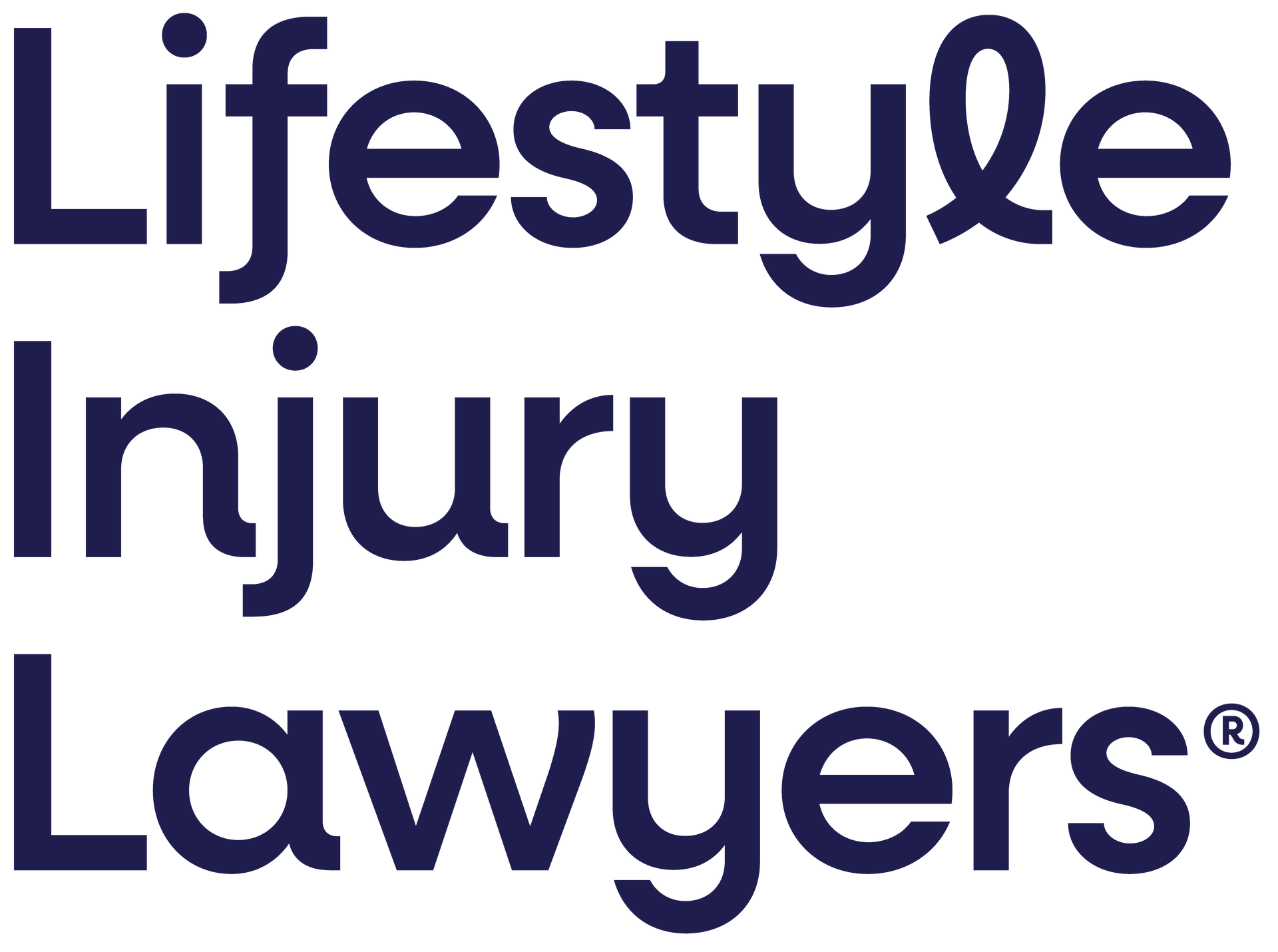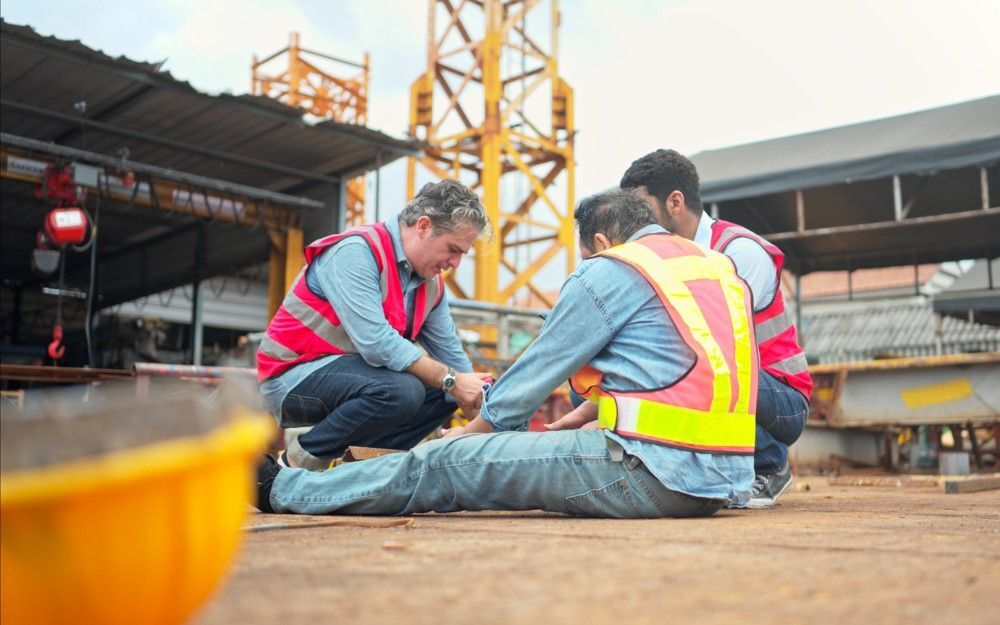I've been injured at work in Queensland. What should I do next?
Getting injured at work can be an incredibly distressing and confusing time. You might be worried about your health, your job, and how you’ll support yourself and your family while you recover. On the bright side, as a Queensland worker, you have strong legal protections and access to compensation to help you through this challenging time. Understanding your rights and the correct steps to take can make a significant difference in your recovery and financial security.
Taking the right steps after your injury can significantly impact both your recovery and your financial stability. This guide will walk you through what to do after a work injury, the compensation you’re entitled to under Queensland law, and how to ensure you get the support you need.
Work-Related Accidents: Some Statistics
Workplace injuries happen more often than you may realise. According to the International Labour Organization (ILO), around 313 million workers worldwide suffer serious injuries at work each year, which translates to about 860,000 incidents daily. In Australia, the situation is no different. Despite a national injury rate of just 3.5%, 139,002 workplace injuries were reported in 2022-2023. These injuries not only affect workers but also have far-reaching consequences for their families and communities. The financial toll is immense, with the Australian economy losing an estimated $28.6 billionannually due to work-related injuries.
These statistics highlight the critical importance of workplace safety and the role that compensation plays in supporting workers in Queensland as they recover and rebuild their lives.
Immediate Steps to Take when Injured at Work
The moments after an injury at work are critical. Acting quickly can help protect your health and strengthen your claim for compensation. Here’s what you should do right away:
Seek Medical Attention
Your health is the top priority. Even if your injury seems minor, getting medical attention ensures that any underlying issues are identified and treated. Visit your doctor or, in the case of a serious injury, go to the emergency department.
Ask your doctor for a Work Capacity Certificate, which details your injury and any work restrictions. This document is essential for your workers’ compensation claim and helps guide your return-to-work process.
Report the Incident to Your Employer
You must notify your employer about the injury as soon as possible. Failing to report your injury in a timely manner can complicate your claim.
Complete an incident report with your employer. Ensure the report includes:
- A clear description of how the injury happened
- The specific date, time, and place where the incident occurred
- Names of any witnesses
- Details of your injuries and immediate symptoms
Keep a copy of this report for your personal records.
Document Everything
Accurate records will support your claim and ensure you receive proper compensation. Keep copies of:
- Medical reports, prescriptions, and receipts for treatment
- Your Work Capacity Certificate
- Communications with your employer and WorkCover Queensland
- Any costs linked to your injury, including travel expenses for medical visits
- Photographs of the injury and accident scene if possible
What Compensation Can I Receive?
If you’re injured at work in Queensland, you have the right to claim benefits, including:
- Weekly compensation payments: If your injury prevents you from working, you may receive up to 85% of your normal weekly earnings for the first six months.
- Coverage for medical and rehabilitation expenses: WorkCover Queensland covers treatment costs, including doctor visits, surgery, physiotherapy, and medication.
- Support for returning to work: You may receive assistance with workplace modifications, alternative duties, and vocational training.
- Travel expense reimbursements: Costs for travel to medical appointments may be covered.
- Lump sum compensation: If your injury results in permanent impairment, you may be entitled to a lump sum payment.
Lodging Your Workers' Compensation Claim
Eligibility Requirements
To qualify for workers’ compensation in Queensland, you must:
- Be employed or classified as a worker under the law
- Have suffered harm while performing your job duties
- Show that your employment was a significant contributing factor to the injury
- Lodge your claim within six months of the injury
How to Lodge Your Claim
Follow these steps to submit your workers’ compensation claim:
- Obtain a Work Capacity Certificate from your doctor.
- Complete a workers’ compensation claim form.
- Submit your claim to WorkCover Queensland:
- Online via the WorkCover Queensland website
- By phone at 1300 362 128
- Through your employer if they are self-insured
Important Timeframes
- Claims must be lodged within six months from the date of injury. While it’s still possible to lodge a claim after this period, you may lose certain entitlements.
- WorkCover has 20 business days to make a decision on your claim.
- If your claim is rejected, you have three months to appeal the decision.
The Return to Work Process
A safe and smooth return to work is a key part of the recovery process. Employers and employees should work together to develop a return-to-work plan that aligns with medical advice.
Rehabilitation and Workplace Adjustments
A structured rehabilitation plan should include:
- A timeline for returning to work
- Modified or alternative duties
- Adjustments to the work environment if necessary
- Regular check-ins with medical professionals
Suitable Duties
Your employer is legally required to provide suitable duties that align with your medical restrictions. These may include:
- Reduced hours or lighter tasks
- Temporary reassignment to a different role
- Workstation modifications
This helps maintain your income and keep you engaged with the workplace while you recover.
Common Challenges and Solutions
Claim Disputes
If WorkCover rejects your claim, don’t panic. You can:
- Request written reasons for the decision
- Provide additional medical evidence
- Seek legal advice to explore appeal options
- Lodge an appeal with the Workers’ Compensation Regulatory Services within three months
Return-to-Work Issues
If your employer is pressuring you to return too soon or is not providing suitable duties, you should:
- Communicate your concerns in writing
- Consult with your doctor and rehabilitation provider
- Seek legal advice if necessary
In a Nutshell
Being injured at work can be overwhelming, but you don't have to navigate the process alone. Understanding your rights and taking prompt action is crucial for protecting your health and financial wellbeing.
Most importantly, don't hesitate to seek legal advice if you face any challenges with your claim or return-to-work process. With proper support and guidance, you can focus on what matters most - your recovery and successful return to work.
Helping You Secure the Best Outcome
Navigating workers' compensation shouldn't feel overwhelming. Our experienced Gold Coast Workers’ Compensation Lawyers will guide you through every step, handling insurer communications, and maximising your entitlements. From initial claim assessment to appeals, we're committed to securing your best outcome - and we work on a no-win, no-fee basis.
Ready to protect your rights? Get in touch now for a free, no risk consultation.
Frequently Asked Questions About Workers’ Compensation
What should I do if my employer discourages me from lodging a claim?
Some employers may pressure workers not to file a claim. This is illegal. You have a right to compensation, and seeking legal advice can help protect you from unfair treatment.
What mistakes should I avoid after a workplace injury?
- Delaying medical treatment: Always seek medical attention promptly.
- Failing to report the injury: Notify your employer as soon as possible.
- Not keeping records: Maintain detailed documentation of medical treatment, expenses, and employer communications.
- Returning to work too soon: Follow your doctor’s advice to avoid aggravating your injury.
Can my employer sack me for making a workers' compensation claim?
No. Queensland laws protect employees from dismissal due to a work-related injury claim. If you experience retaliation, seek legal advice immediately.
Should I get a lawyer for my workers' compensation claim?
Although not required, having an expert Workers’ Compensation Lawyer is invaluable if your claim is denied, your benefits are cut off prematurely, or you’re offered a lump sum settlement. Having legal representation helps secure the compensation you rightfully deserve.
Does workers' compensation cover psychological injuries?
Yes. If you suffer from work-related stress, anxiety, PTSD, or other psychological conditions, you may be eligible for compensation, provided your employment significantly contributed to the condition.





